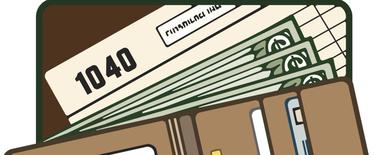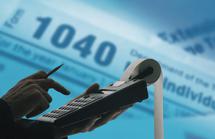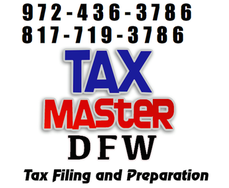Tax Preparation Blog
Assets and Liabilities
by Tax Master DFW on 09/26/14
Assets and Liabilities
Keywords:
#Arlington_Tax_Preparation, #Tax_Preparation, #Tx_Tax_prep, #Texas_Tax_Preparation, #Arlington_Tax_Prep, #Arlington_TX, #Tax_Prep, #DFW_Tax_Prep, #Tax_Filing, #Taxes, #Lewisville_Tax_Prep, #Lewisville_Tax_Preparation, #DFW_Tax_Preparation, #Arlington, #Tarrant_County, #Reduce_Taxes, #Tax_Refunds, #Pay_Taxes, #Tax_Help, #Bookkeeping, #DFW_Bookkeeping, #Investing, #tax_bookkeeping, #DFW, #Texas, #North_Texas
Making a profit in a business is derived from several different areas. It can get a little complicated because just as in our personal lives, business is run on credit as well. Many businesses sell their products to their customers on credit. Accountants use an asset account called accounts receivable to record the total amount owed to the business by its customers who haven't paid the balance in full yet. Much of the time, a business hasn't collected its receivables in full by the end of the fiscal year, especially for such credit sales that could be transacted near the end of the accounting period.
The accountant records the sales revenue and the cost of goods sold for these sales in the year in which the sales were made and the products delivered to the customer. This is called accrual based accounting, which records revenue when sales are made and records expenses when they're incurred as well. When sales are made on credit, the accounts receivable asset account is increased. When cash is received from the customer, then the cash account is increased and the accounts receivable account is decreased.
The cost of goods sold is one of the major expenses of businesses that sell goods, products or services. Even a service involves expenses. It means exactly what it says in that it's the cost that a business pays for the products it sells to customers. A business makes its profit by selling its products at prices high enough to cover the cost of producing them, the costs of running the business, the interest on any money they've borrowed and income taxes, with money left over for profit.
When the business acquires products, the cost of them goes into what's called an inventory asset account. The cost is deducted from the cash account, or added to the accounts payable liability account, depending on whether the business has paid with cash or credit.
4 Reasons People Get Into Trouble With the IRS
by Tax Master DFW on 09/08/14
Title:
4 Reasons People Get Into Trouble With the IRS
Word Count:
328
Summary:
You don't want to mess with the Internal Revenue Service. One small mix-up when handling your finances can cost you big.
Keywords:
#Arlington_Tax_Preparation, #Tax_Preparation, #Tx_Tax_prep, #Texas_Tax_Preparation, #Arlington_Tax_Prep, #Arlington_TX, #Tax_Prep, #DFW_Tax_Prep, #Tax_Filing, #Taxes, #Lewisville_Tax_Prep, #Lewisville_Tax_Preparation, #DFW_Tax_Preparation, #Arlington, #Tarrant_County, #Reduce_Taxes, #Tax_Refunds, #Pay_Taxes, #Tax_Help, #Bookkeeping, #DFW_Bookkeeping, #Investing, #tax_bookkeeping, #DFW, #Texas, #North_Texas
Article Body:
You don't want to mess with the Internal Revenue Service. One small mix-up when handling your finances can cost you big.
For example, in recent years the IRS has increased its filing of levies, liens and wage garnishments. In fact, in 2004 alone, approximately 2.5 million levies were filed.
The experts at JK Harris & Co., one of the nation's largest tax resolution firms, offer this list of common ways people get into trouble with the IRS.
1. Filing too many exemptions. An exemption gives you a major tax deduction, and some taxpayers can't resist the temptation to report more exemptions than they're entitled.
You can only claim exemptions for yourself, a spouse and for all "dependents." Dependents have to meet specific criteria, however, so make sure you follow the IRS guidelines so that you don't mistakenly file an extra exemption.
2. Being unaware of taxes levied for early withdrawal from certain retirement plans. If you withdraw from a retirement fund such as a 401(k) or IRA before you're 59 1/2, you may face a 10 percent federal penalty on your investments, as well as a state penalty and an income tax on the money withdrawn.
3. Not paying enough taxes when self-employed. Many people who own their own businesses don't know how much they have to pay in taxes. The tax structure for a self-employed person - what to pay, how to pay and what can be deducted - is decidedly complex, so it's easy to become confused.
4. Not paying taxes on winnings. It is necessary to report all gambling winnings, including winnings from lotteries, casinos and horse races, as income.
For people who are in trouble with the IRS, there are various programs available that can provide debt relief if a taxpayer qualifies. JK Harris helps its clients determine if they meet the requirements for one of these IRS programs. Its staff includes former IRS agents, certified public accountants, attorneys, enrolled agents and other experts that offer tax services, financial planning, small business services and other assistance.








